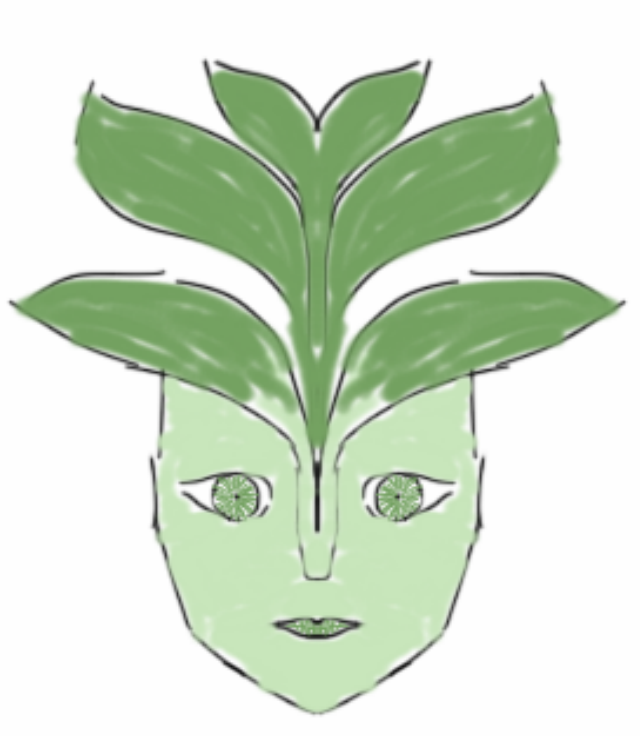-
Naš Linkuts (“Our Parting”)
An Albriánus Legend (2022, Excerpt)
The following excerpt is from a story on top of a story. Or a story within a story, depending on how you look at it.
In High School, I dreamed up a fictional people called the Albriány. I scribbled pictures of them in the margins of my notebooks, wrote pages of details about their made up culture, and even wrote a novel about them. The novel took several years to complete and I wasn't satisfied with it when I finished. By then I was in college and while I continued to dabble in creative writing, I left the Albriány and their story behind.
It wasn't until I graduated that I found a renewed interest in my made-up people. I expanded and deepened their pre-existing lore, thinking of the foods they might eat, the holidays they would celebrate, the way they may describe the seasons. I started writing the language of Albriána, a tedious and continuing endeavor.
Eventually I started to wonder how much I could distill my original story. 300 pages became 6 as I re-envisioned the novel as an Albriánus myth: a tale of two lovers torn apart by differing dreams and the great expanse of the sea.

My first picture of an Albriánus person, drawn in 2013 when I was a freshman in High School.
Nightmare fuel, I know.Five-thousand years before Naš Linkuts, the Nimry, clad in shining robes, opened the Cold Sea and lifted Inari from its depths. To protect it from the icy winds, Antania, the builder, encircled the island in a high stone ridge. Within those walls, Alvan the planter laid trees, shrubs and grasses. Róberan, lord of animals, set wild game, fowl, and other creatures to dwell there. And Pingor, who knows, set a rhythm in everything. But Inari was not yet complete.
There in the midst of the forest, Sofía, mother of language, sang a song so beautiful the trees uprooted themselves to follow her. As they gathered, the godsong flowed over her lips and deep into their hearts, where it sang through them as well. She gave them voices and named them Albriány.
On a hill in the center of the island, the five Nimry built the cradle city of Polabria. Antania erected its great marble halls, Alvan lined the streets with trees and flowers and Pingor filled its libraries with all the knowledge of the world. There, the Nimry took human form and taught the Albriány all they knew. For many hundreds of years they stayed and watched over their children, but with every winter solstice their mortal bodies withered, until at last they departed, promising to return when they were needed most.
And so the Albriány lived and thrived on Inari for many lifetimes, eating fruit, herb, fish, beast, and sun. But they grew too many for the cradle island to bear. Word spread of lands beyond the icy seas and hearts grew eager to explore. It was at this time the lovers Juvala and Niéna lived.
Now Niéna was one of those of the house of Antania who lived on the ridge, passing over to fish and hunt seals in the warmer months of the year. Many times in her fishing boat she contemplated the horizon, wondering what lay beyond her sight. Juvala was of the house of Alvan and a lover of all things that grow. Never did she wish to leave the shores of Inari, but in Niéna’s heart she knew there was a restlessness.
One year, as the days grew longer, Niéna felled a red cedar tree and from half of it she fashioned a great boat. Gathering berries, dried fish, and seal-pemmican, she prepared to travel across the sea. At the place where the ridge meets the forest, she bid her love goodbye, but promised to return by the eve of the solstice.
All through Kriéskuts and the planting season, Juvala kept the memory of Niéna close to her heart. And as the sprouts emerged and grew, so too did her anticipation. On the eve of the solstice, she returned to their meeting-place at the base of the ridge, but her lover was not there. She traveled to Niéna’s kin, but they had not seen her since she passed below the horizon. And so Juvala waited, through the growing, the harvest, the red leaves, the snows, and the planting once more, often returning to their meeting-place in hopes that Niéna may find her there.
On the eve of the second solstice, a falcon descended and perched before her on a branch. It lingered, waiting, but fled as she approached it. She did not see Niéna, and so she waited through the seasons once more.
On the third solstice, the falcon appeared again. This time she pursued it as it ascended the wall of the ridge, but soon it flew beyond her sight. Still Niéna did not return, and so she continued to wait. Each year the falcon returned and each year she followed it a little farther, until on the fifth solstice she reached the top of the ridge to see the bird gliding Southward over the waves. And at last, Juvala knew she must leave Inari.
